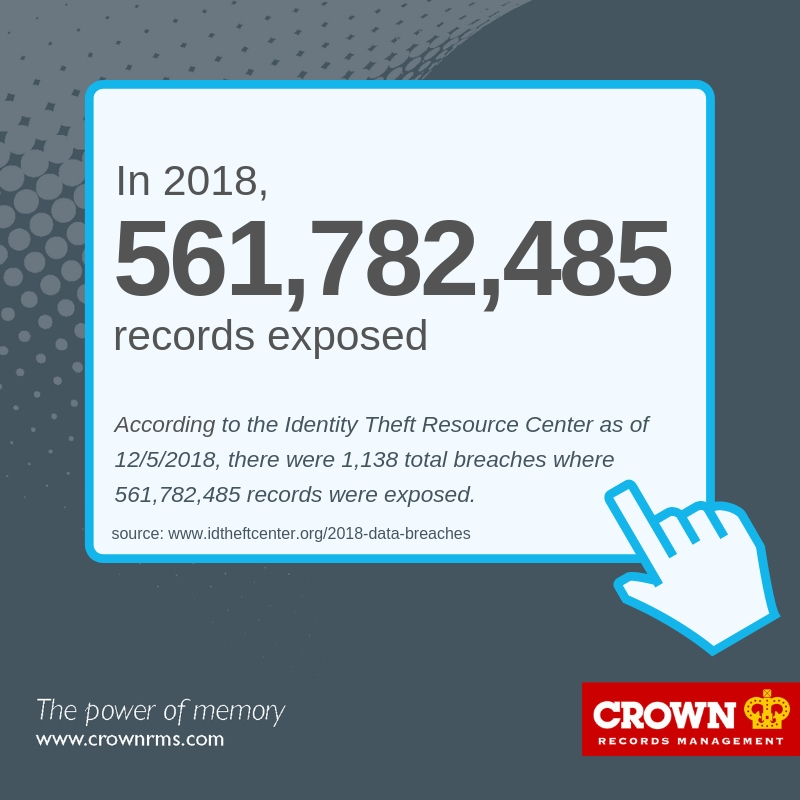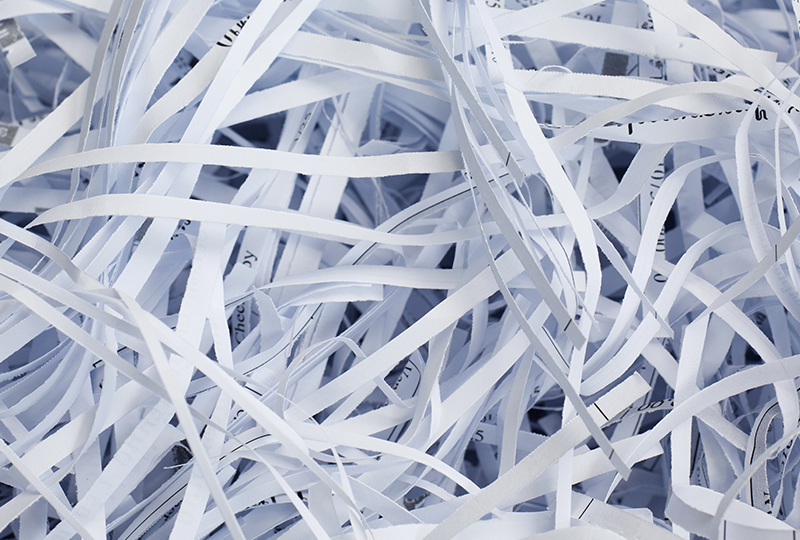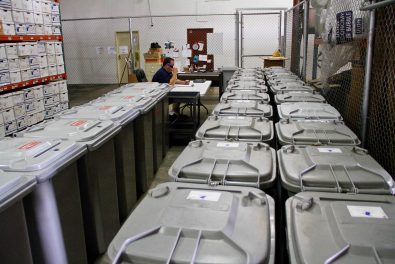
This year we saw an unprecedented amount of data breaches. Some of the biggest victims since 2018 have included British Airways, T-Mobile, Quora, Google, Marriott and Orbitz. Facebook dealt with a slew of major breaches and incidents that affected more than 100 million users of the popular social network.
How does this even happen? Data breaches can happen for a variety of reasons. Some companies are hacked. Data can be mishandled or sold to third parties. Holes in a website’s security system can leave information unprotected.
So, how do you keep safe when practically all of your information is online? Records management is a multi-billion dollar industry. Keeping company’s documents safe is the priority of Crown Records Management. As an individual, there are ways that you can keep your personal data and records safe and avoid data breaches. Here are a few tips to help you get a head start for the New Year and avoid potential data breaches.
Use a reputable password manager
If you are still using “password” or “123456” for your password, what are you thinking? Too many consumers still use these passwords today, and not only that but they use it over and over on all of their accounts. New Year’s resolution #1, besides working out more or eating healthier should be to start using a reputable password manager like: LastPass or 1Password! Using a defensive depth approach like two-factor authentication, which requires an additional step, like a fingerprint or a texted code to access your account will help keep you and your data safer in 2019.
Be more suspicious of emails
People are still willing to click on links that come through to their emails. Seven out of 10 cyberattacks start with a phishing email. Data breaches from major companies give cybercriminals bits and pieces of your information if you were one of the 561,782,485 million[1] records reportedly affected in 2018, don’t give them more data fuel by clicking on a phishing email. The holidays see a lot of criminal activity because of the sheer amount of products bought online nowadays. Think before you click: Did you actually order that product? Did you receive a shipment?

Update your software, often!
Look at the bottom right hand corner of your corner. How many times have those notifications popped up? Admittedly, they can be so annoying! But you will be better protected than the person that doesn’t update their software as frequently as possibly. Fifteen minutes of updates is clearly better than falling victim to a life-changing data breach.
You may have heard of the 2017 Equifax data breach, in which 143 million Americans were potentially affected by having their Social Security numbers, birth dates, and home addresses exposed. The hackers were able to access the credit reporting agency’s data through a known vulnerability in a web application. A fix for this security hole was actually available two months before the breach, but the company failed to update its software. This was a tough lesson, but one that we can all learn from. Software updates are important because they often include critical patches to security holes.
Shred and purge unnecessary documents
All year long you’ve collected receipts from dining out, travel expenses, monthly credit card and medical bill statements, emails, pay stubs and any other information deemed as PII (personal identifiable information, something here at Crown we hold to the utmost importance) and confidential. Gather all of the documents you have and determine what needs to be stored for tax purposes and what can be shredded. Simply tearing up a document is not enough to stop identity thieves. Make sure you shred any documents that may contain personally identifiable information. Lastly, go through your computer files and purge unnecessary copies of work files, images, videos and other data that does not need to be backed up.
Secure your confidential documents
After you’ve removed all of your unnecessary paper and digital records, take the time to organize your important documents. You can organize your files into categories such as vital documents, legal documents, and financial documents. The healthcare and financial industries have to follow regulations on how long records must be kept. Those can be organized into categories such as short and long-term. Documents that require short-term can be stored on your computer protected by a password. Long-term records that require years of storage can be expensive and use a lot of office space. Consider using a third-party such as Crown Records Management
According to the Identity Theft Resource Center as of 12/5/2018, there were 1,138 total breaches where 561,782,485 records were exposed.








